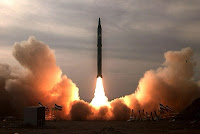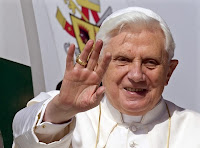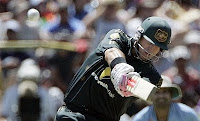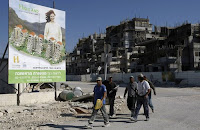How to Train Your Dragon won the weekend box-office battle
How to Train Your Dragon won the weekend box-office battle, but with a purr, not a roar. DreamWorks' latest effort in CGI animation earned $43.3 million in its opening three days, according to early studio estimates. That was more than enough for it to dethrone Disney's Alice in Wonderland, which had reigned for the last three weeks and from which it had filched many of the venues that show movies in the zazzier 3-D format, where a $3 or $4 price hike on each ticket is the norm. Still, Dragon's firepower was more tepid than scalding when compared with recent DreamWorks cartoons. (See TIME's review of How to Train Your Dragon.)
Unlike Pixar, its chief rival in CGI animation, DreamWorks usually casts big names to supply the voices for its lead roles and promotes the stars as if they were to be seen, not just heard, on screen; that's one key to its movies' financial success. No question that the names of Jack Black, Angelina Jolie, Dustin Hoffman, Seth Rogen and Jackie Chan helped 2008's Kung Fu Panda reach its $60.2 million opening weekend, or that Reese Witherspoon, Rogen, Paul Rudd, Hugh Laurie and Stephen Colbert lent heft to last spring's Monsters vs Aliens ($59.3 million). Dragon's lead, Jay Baruchel, isn't yet at that level of star wattage. Audiences had to be sold on the movie by its teen-trains-a-dragon premise and, even more, by the DreamWorks brand name; the studio's hope was that people would see the movie, enjoy it, then tell or text their friends.
That could yet happen: Dragon pulled a gold-star A rating in CinemaScore's poll of exiting moviegoers, and the film has a two-week commitment from its 3-D theaters, where the big money is. DreamWorks wouldn't mind if Dragon ended up near Alice, which is closing in on $300 million in domestic gross (and another $350 million abroad), and just behind Avatar, which finally fell out of the top 10 after 14 weeks, as one of 2010's three biggest winners — all in 3-D. (See the top 10 movie performances of 2009.)
This was the third consecutive week boasting a movie with a nerdish hero, as Dragon followed She's Out of My League (which finished sixth this weekend, with a total gross of $25.6 million), and Diary of a Wimpy Kid (in fifth place, with $35.8 million). Indeed, several of the guys in the other new wide release, Hot Tub Time Machine, fit the underachieving mold. The lurid, inspired title aside, fans of late-night soft-core woo-pitching will be disappointed to learn that the four people in the hot tub at the beginning of the film are all guys, three of them middle-aged. The movie has plenty of gross-out gags, mandatory for an R-rated comedy, but with John Cusack as its star, it may have skewed too old (late-30s, early-40s) to drag the young into its make-fun-of-the-'80s time frame. The picture pulled in a modest $13.5 million. (Comment on this story.)
What is so-so for Hollywood pictures would be wowee for independent films. Chloe, the weekend's sole medium-size release, earned $1 million in 350 theaters. A sexual melodrama offering the glory of hot-sheets action between Amanda Seyfried and Julianne Moore, Chloe will never get near the numbers of a well-promoted movie from a major studio. Nor will Noah Baumbach's Greenberg, a potential-breakout romance that won a sheaf of favorable reviews and has an actual movie star, Ben Stiller, in the title role; it took in $1.1 million on 181 screens. The Runaways, starring Dakota Fanning and Twilight's Kristen Stewart, is already DOA after two weeks. About as close as a non-Hollywood film can get to hit status is the $9.2 million cadged so far by Roman Polanski's The Ghost Writer, which has had great word of mouth from most of those who've seen it — but not nearly enough have seen it. (See the top 10 Pixar voices.)
The sad fact is that the revenue discrepancy between the mainstream Hollywood product and indie or foreign films has never been so chasmic. In domestic box-office terms, How to Train Your Dragon is the Statue of Liberty, while the new Swedish release The Girl with the Dragon Tattoo is one of those Willard Wigan microsculptures that fit inside the eye of a needle.
Based on the first of Stieg Larsson's internationally best-selling trilogy of crime novels, Dragon Tattoo has earned nearly $85 million abroad. The movie might be expected to lure fans of the books, and the enthusiastic reviews (a robust 83% score on Rotten Tomatoes) should attract other curious moviegoers. So far, the movie has earned $840,000 in 10 days — a decent start for a movie with subtitles. The film will expand its theater base in the coming weeks, and we'll see if there's room in the 3-D blockbuster marketplace for a smart thriller that has nothing going for it but quality.



















